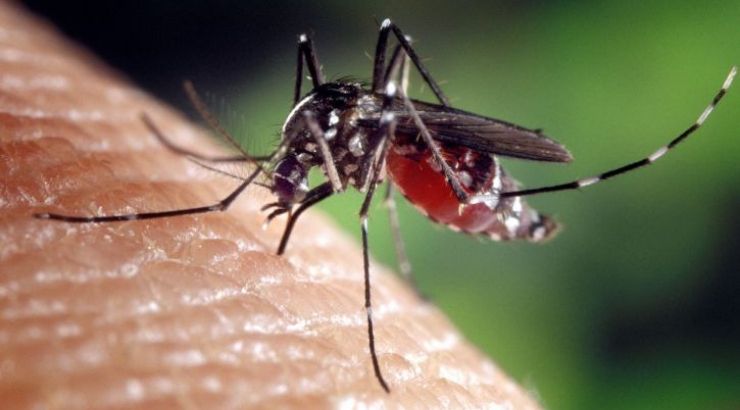A Shazai restaurant owner named Li said:
Science & Tech
Scientists Just Used a New Method to Completely Wipe Out Mosquitoes on Two Islands
Mosquitoes spread diseases that ultimately kill more than 700,000 people around the world every year.

(TMU) — According to a study published in the journal Nature this week, scientists have managed to eradicate an entire population of mosquitoes on not one, but two islands in China.
On the surface, this news sounds like something most people with blood coursing through their veins could get behind. But should we mess with the reproductive abilities of a living thing, even if that creature makes us itchy, buzzes in our ears at night, and sometimes spreads disease? And what are the ecological impacts of doing so?
Over the course of almost two years, a group of scientists released upwards of 200 million male Asian tiger mosquitoes—also known as Aedes albopictus—that were specially bred. They were released on the islands of Shazai and Dadaosha south of Guangzho, an area with a high number of dengue fever cases.
Aedes albopictus are capable of transmitting a range of diseases, including Zika and West Nile in addition to dengue fever.
The doomed mosquitoes brought to the two islands first experienced short bursts of gamma radiation and were infected by three species of the parasitic microorganism Wolbachia. The experience rendered them all infertile.
In an effort to make these infertile male mosquitoes as attractive as possible to the native female mosquitoes on Shazai and Dadaosha during the mating season, they were fed an unnatural diet of sugar to make them bigger and stronger. The goal being that the females would mate with the juiced-up males, rending their eggs unviable.
In the end, native mosquitoes vanished. Completely.
Although the scientists did later find a few rogue mosquitoes on the island, genetic analysis revealed they likely did not originate on either island but were brought there by humans. Which begs the question, will a mosquito-free island simply be repopulated by non-native mosquitoes? And if so, what ecological implications may arise?
As the project was launched, locals were skeptical and concerned about the dramatic increase in the number of mosquitoes buzzing around them. Male mosquitoes don’t suck blood, but their presence can be a nuisance.
But by the experiment’s conclusion, recorded bites fell by more than 96% and polls showed that the great majority of islanders supported the project.
“In the past there were so many mosquitoes we dared not stay outside in late afternoon. Now mosquitoes can barely be seen, and those few remaining rarely bite.
The technology is a miracle. We used to be skeptics. Now we are fans.”
While the local population seems pleased with the outcome, it is important to consider the ecological impacts of completely eradicating an insect from an entire island, a country, or even an entire continent. While on the surface, most humans can’t seem to come up with a reason that these pests exist, but just because they appear more harmful than useful to us doesn’t mean that is the case for other organisms. While the breeding facility in Guangdong is capable of producing a mind boggling 10 million modified males per week, is that the best course of action?
It turns out, mosquito larvae is important. Fish feed on the larvae and those that survive mature into mosquitoes that serve as prey for numerous species of bird.
At the same time, for humans, mosquitoes are actually the most deadly creatures of all. According to some biologists, it would still be better to wipe the insects out than let them spread deadly diseases that ultimately kill more than 700,000 people around the world every year.
Humanity must decide, do we purposefully wipe out an insect and alter the food chain in order to save ourselves?
By Emma Fiala | Creative Commons | TheMindUnleashed.com
Typos, corrections and/or news tips? Email us at Contact@TheMindUnleashed.com
